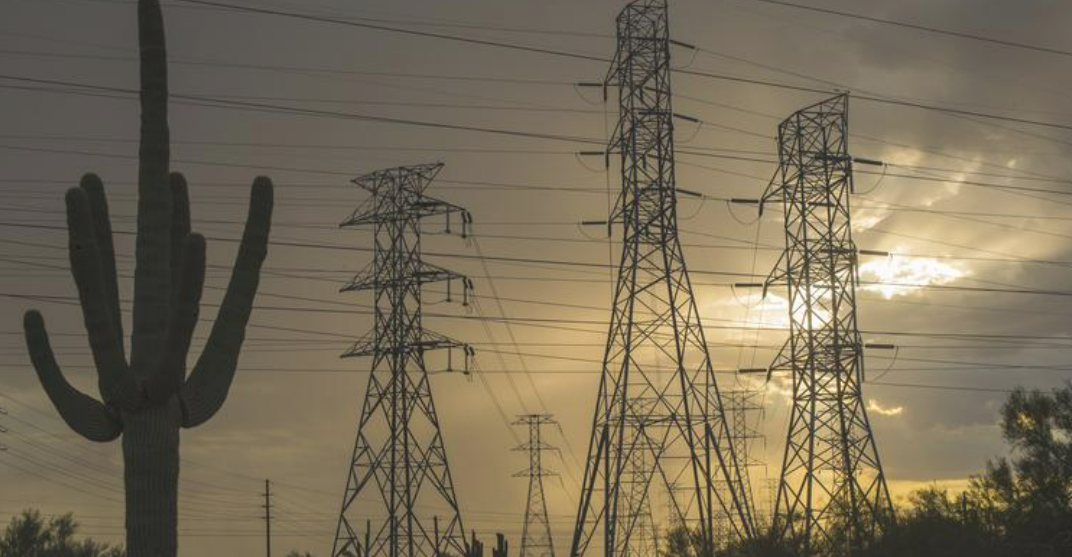Arizona lawmakers pass bill to restrict competition in electricity market

Both chambers of Arizona’s legislature have now approved legislation that would eliminate future competition in the state’s electricity generation market, following a Senate vote on Tuesday.
HB2101 revises current law to close the door on future entrants joining the market, which maintains the monopoly that current providers hold. The bill was supported by Arizona Public Service and Tucson Electric Provider, the state’s two largest investor-owned electricity providers, as well as the Salt River Project.
The same bill failed to pass in the legislature when it was considered in March, as reported by the Arizona Republic.
This action was inspired, in part, when Houston-based Green Mountain Energy applied to enter Arizona’s electricity market last year in a bid to compete against APS and TEP. Green Mountain, which is a subsidiary of Houston-based NRG Energy Inc. (NYSE: NRG), had planned to offer 100% renewable energy to its customers.
Retail providers like Green Mountain are allowed in Arizona under current law, but none have been approved to operate in the state. Gov. Doug Ducey’s office would not comment on whether or not he intended to sign the bill.
‘Not surprised’
Mark Parsons, vice president and general manager of Green Mountain Energy, said the company regretted the outcome following the Senate’s passage of HB 2101 on April 19.
“We were disappointed that Arizona’s utilities have aggressively maneuvered to deny their customers options for alternative providers by introducing HB 2101, which repeals the statutory basis for us to receive a license to operate in the state, but we were not surprised: Monopolies do not like competition,” he said in a statement. “HB 2101 would close down our opportunity to receive a license to operate under state law without even a hearing in Arizona.”
Conversely, APS said it was happy with the bill’s passage.
“APS is pleased to see the Senate pass HB2101 with bipartisan support,” the company wrote in a statement shared with the Business Journal. “We respectfully seek the governor’s support of the bill, which protects consumers, keeps prices low, and ensures grid reliability.”
Patty Garcia-Likens, with SRP’s media relations department, said that California and Texas serve as examples that show Arizona’s current utility system provides a better foundation for economic development. She also cited the coalition of Arizona groups that advocated for the measure.
“This coalition has strong concerns about the prospects of deregulating Arizona’s highly performing electrical system, particularly after seeing two decades of experiences in other states — often higher costs, diminished reliability and the proliferation of predatory marketing — to the detriment of customers,” she said. “The bill provides important protections for customers, including eliminating the market structure that exposes customers to predatory and deceptive marketing.”
Joe Salkowski, TEP’s Senior Director of Communications and Public Affairs, also hailed the bill’s passage.
“We’re pleased that lawmakers acknowledged what two decades of history has already proven — that the outdated, 20th century approach to electric deregulation just doesn’t work,” he said. “We look forward to future conversations about policies that support safe, reliable, affordable and sustainable electric service for our state.”
The vote was consequential for ratepayers in Arizona, but it has not inspired much Wall Street action; Share prices Pinnacle West (NYSE: PNW) and Fortis (NYSE: FTS), parent companies to APS and TEP respectively, were essentially flat at last check of Wednesday trading. Click here to follow Pinnacle West and here to follow Fortis.
Party line vote
The bill passed through both the House and Senate mostly along party lines, with Republicans generally in favor of limiting competition and Democrats voting to open the market to new entrants.
The bill drew more than 730 requests to speak from the public, more than 90% of which were opposed to the legislation.
Proponents of the bill framed the changes as a focus on grid reliability, swapping several references to “electric power competition” to “electric energy reliability” in the legislation’s text, but the bill does not include any tangible changes to the status quo that would actually boost grid reliability in the state.
A lack of competition in the market means Arizona residents and businesses concerned about climate change will have to follow the decisions of current providers and the pace at which they shift to renewable offerings.
Arizona’s energy providers are unbound from any regulatory requirements to cut emissions, following the ACC’s January vote to kill proposed clean energy rules. The ACC regulates most of the state’s electricity providers, but not SRP, which is a nonprofit.
Current providers would have felt some pressure from Green Mountain, which aimed to offer 100% renewable energy to its customers by purchasing renewable energy certificates (RECs) from other companies that produce power; Green Mountain planned to work with SawTooth Dev Co., which would have built renewable energy generation sites in Arizona if the ACC had approved its bid.
Arizona is one of 11 states in the country that has an elected, rather than appointed, board of utility commissions.
